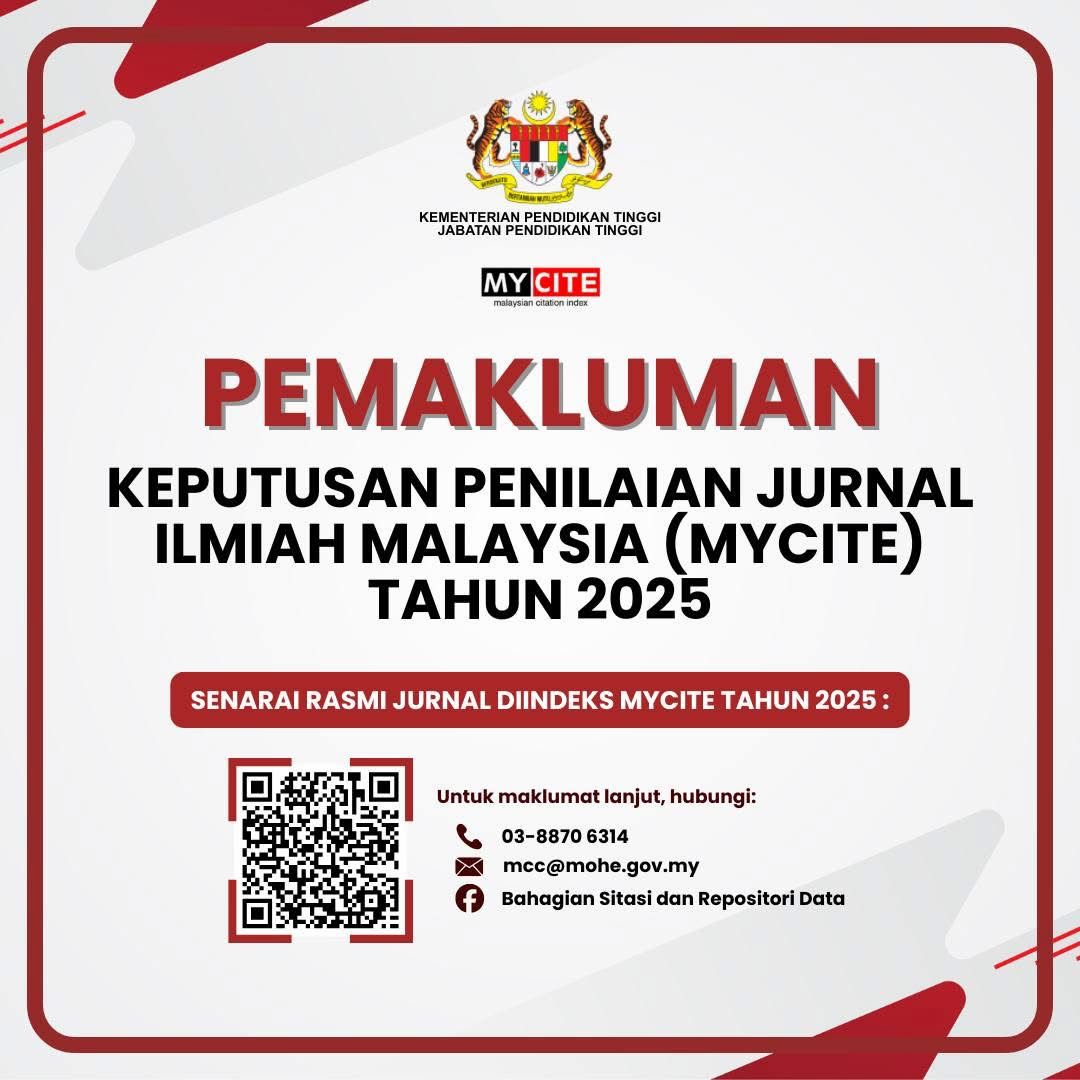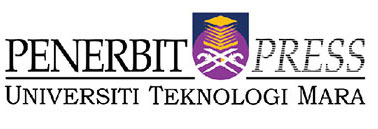Rethinking Recycling: Understanding Audience Perception for Designing Effective Campaigns
DOI:
https://doi.org/10.24191/idealogy.v8i2.510Abstract
Recycling campaigns uses various methods and platforms such as social media, advertising, mobile applications, and digital games aim to raise awareness and educate public on the importance of recycling through visual information. After almost three decades of recycling campaigns carried out by responsible party to ensure that 40 percent of waste can be reused by 2025, the community's response to the initiative is still low. Although different methods and platforms are used in recycling it still does not deliver profound impact to the public. Therefore, this study will specifically explore the audience's perception of recycling campaign which is influenced by several factors such as design elements, the uses of colour and visuals, information arrangement, as well as emotional involvement. This study is important to identify the factors that influence the audience's perception and involvement in the campaign. Through the literature review method, this study describes the elements of recycling campaign design that act as independent variables, and the audience's perception as the dependent variable. A conceptual framework is built as initiative to clearly explain the study on the factors that influence the audience's perception as reference to create an effective recycling campaign. It provides valuable guidance to campaign organizers, policy makers, and environmental advocates to plan and implement effective recycling campaign strategies for focused target group and foster positive environmental change.
Keywords: recycling campaign; audience perception; influence; attitudes; effectiveness
References
Budihardjo, M. A., Ardiansyah, S. Y., Ramadan, B. S. (2022). Community-Driven Material Recovery Facility (CDMRF) for sustainable economic incentives of waste management: Evidence from Semarang City, Indonesia. Habitat International, 119, 102488. https://doi.org/10.1016/j.habitatint.2021.102488
Cohen, C., Halfon, E., & Schwartz, M. (2021). Trust between municipality and residents: A game-theory model for municipal solid-waste recycling efficiency. Waste Management, 127, 30–36. https://doi.org/10.1016/j.wasman.2021.04.018
Cui, Y., Cao, Y., Ji, Y., Chang, I., & Wu, J. (2022). Determinant factors and business strategy in a sustainable business model: An explorative analysis for the promotion of Solid Waste Recycling Technologies. Business Strategy and the Environment, 31(5), 2533–2545. https://doi.org/10.1002/bse.3042
Dash, G., Sharma, C., & Sharma, S. (2023). Sustainable Marketing and the role of Social Media: An experimental study using natural language processing (NLP). Sustainability, 15(6), 5443. https://doi.org/10.3390/su15065443
Desa, A., Abd Kadir, N., & Yusooff, F. (2012). Environmental awareness and education: A key approach to Solid Waste Management (SWM) – A case study of a university in Malaysia. Waste Management - An Integrated Vision. https://doi.org/10.5772/4819
Duong, C. D. (2023). “What goes around comes around”: Activating sustainable consumption with curvilinear effects of karma determinants. Journal of Retailing and Consumer Services, 73, 103351. https://doi.org/10.1016/j.jretconser.2023.103351
Fang, L., Shi, S., Gao, J., & Li, X. (2022). The mediating role of Green Innovation and green culture in the relationship between Green Human Resource Management and Environmental Performance. PLOS ONE, 17(9). https://doi.org/10.1371/journal.pone.0274820
Gibovic, D., & Bikfalvi, A. (2021). Incentives for Plastic Recycling: How to engage citizens in active collection. empirical evidence from Spain. Recycling, 6(2), 29. https://doi.org/10.3390/recycling6020029
Ha, M.-T. (2022). Greenwash and Green Brand Equity: The mediating role of green brand image, Green Satisfaction, and Green Trust, and the moderati
ng role of Green Concern. PLOS ONE, 17(11). https://doi.org/10.1371/journal.pone.0277421
Huang, Q., Chen, G., Wang, Y., Xu, L., & Chen, W.-Q. (2020). Identifying the socioeconomic drivers of solid waste recycling in China for the period 2005–2017. Science of The Total Environment, 725, 138137. https://doi.org/10.1016/j.scitotenv.2020.138137
Izagirre-Olaizola, J.; Fernández-Sainz, A.; Vicente-Molina, A. Internal determinants of recycling behaviour by university students: A cross-country comparative analysis. Int. J. Consum. Stud. 2014, 39, 25–3
Jacintha. (2020, March 4). F&N “Recycle for a life cycle” day makes recycling fun. Fraser & Neave. https://www.fn.com.my/fn-recycle-for-a-life-cycle-day-makes-recycling-fun/
Jesson, J. (2009). Household waste recycling behavior: A market segmentation model. Social Marketing Quarterly, 15(2), 25–38. https://doi.org/10.1080/15245000902957326
Kaza S, Yao L, Bhada-Tata P, Van Woerden F (2018) What a waste 2.0: a global snapshot of solid waste management to 2050.
Kim, M., Olson, S., Jordan, J. W., & Ling, P. M. (2020). Peer crowd-based targeting in e-cigarette advertisements: A qualitative study to inform counter-marketing. BMC Public Health, 20(1). https://doi.org/10.1186/s12889-019-8126-x
Knickmeyer, D. (2020). Social factors influencing household waste separation: A literature review on good practices to improve the recycling performance of urban areas. Journal of Cleaner Production, 245, 118605. https://doi.org/10.1016/j.jclepro.2019.118605
McQuarrie, L. (2022, November 18). Rusted part. Animal Crossing Wiki. https://animalcrossing.fandom.com/wiki/Rusted_part
Palm, J., Smedby, N., & McCormick, K. (2019). The role of local governments in governing sustainable consumption and sharing cities. A Research Agenda for Sustainable Consumption Governance, 172–184. https://doi.org/10.4337/9781788117814.00021
Peng, Y., Gao, F., & Chen, J. (2020). Sustainable Packaging and consumer engagement. SSRN Electronic Journal. https://doi.org/10.2139/ssrn.3679449
Rafee, H. (2022, June 13). IJM land introduces Drop ’n Go – 5KG campaign to encourage sustainable ... https://news.nestia.com/detail/IJM-Land-introduces-DROP-’n-GO-%E2%80%93-5KG-Campaign-to-encourage-sustainable%2C-recycling-habits/9105785
Rosenberg, L. (2021, May 27). The biggest problem in recycling, according to Recycle coach (exclusive). Green Matters. https://www.greenmatters.com/p/recycle-coach-app
Santti, U., Happonen, A., & Auvinen, H. (2020). Digitalization boosted recycling: Gamification as an inspiration for young adults to do enhanced waste sorting. 13th International Engineering Research Conference (13TH EURECA 2019). https://doi.org/10.1063/5.0001547
Sheila. (2023, May 2). How to Recycle Social Media Content (platform to platform). Tailwind Blog. https://www.tailwindapp.com/blog/how-to-recycle-social-media-content
Sinthiya, N. J., Chowdhury, T. A., & Haque, A. K. (2022). Artificial intelligence based Smart Waste Management—a systematic review. Computational Intelligence Techniques for Green Smart Cities, 67–92. https://doi.org/10.1007/978-3-030-96429-0_3
Teng, L., Zhao, G., Li, F., Liu, L., & Shen, L. (2019). Increasing the persuasiveness of anti-drunk driving appeals: The effect of negative and positive message framing. Journal of Business Research, 103, 240–249. https://doi.org/10.1016/j.jbusres.2019.01.050
Sim, K. (2020, August 24). Efforts made to educate public on recycling, but govt to explore how to better raise awareness. TODAY. https://www.todayonline.com/voices/efforts-made-educate-public-recycling-govt-explore-how-better-raise-awareness
Vining, J., & Ebreo, A. (1989). An evaluation of the public response to a Community Recycling Education Program. Society & Natural Resources, 2(1), 23–36. https://doi.org/10.1080/08941928909380673
Downloads
Published
Issue
Section
License
UiTM Press (the Publisher) has agreed to publish the undersigned author’s paper in Idealogy Journal. The agreement is contingent upon the fulfilment of a number of requirements listed below.
1. The undersigned author warrants that the paper entitled below is original, that it is not in any way libellous or unlawful in Malaysia, that it does not infringe any copyright or other proprietary right. The undersigned hereby represents and warrants that he/she is the author of the paper, except for material that is clearly identified as to its original source, with permission notices from the copyright owners where required. The undersigned represents that he/she has the power and authority to sign and execute this agreement.
2. The undersigned author warrants that the paper entitled below has not been published elsewhere, and also it will not be submitted anywhere else for publication prior to acceptance/rejection by this Journal.
3. By submitting the paper entitled below, the undersigned author agrees to transfer the rights to publish and distribute the paper in an international e-journal (entitled above) to Publisher.
4. The undersigned author agrees to make a reasonable effort to conform to Publisher's submission guidelines and to liaise with the editor to ensure that the requirements of these guidelines are met to a reasonable degree.
5. The corresponding author signs for and accepts responsibility for releasing this material on behalf of any and all coauthors. This agreement is to be signed by at least one of the authors who has obtained the assent of the co-author(s) where applicable. After submission of this agreement signed by the corresponding author, changes of authorship or in the order of the authors listed will not be accepted.




